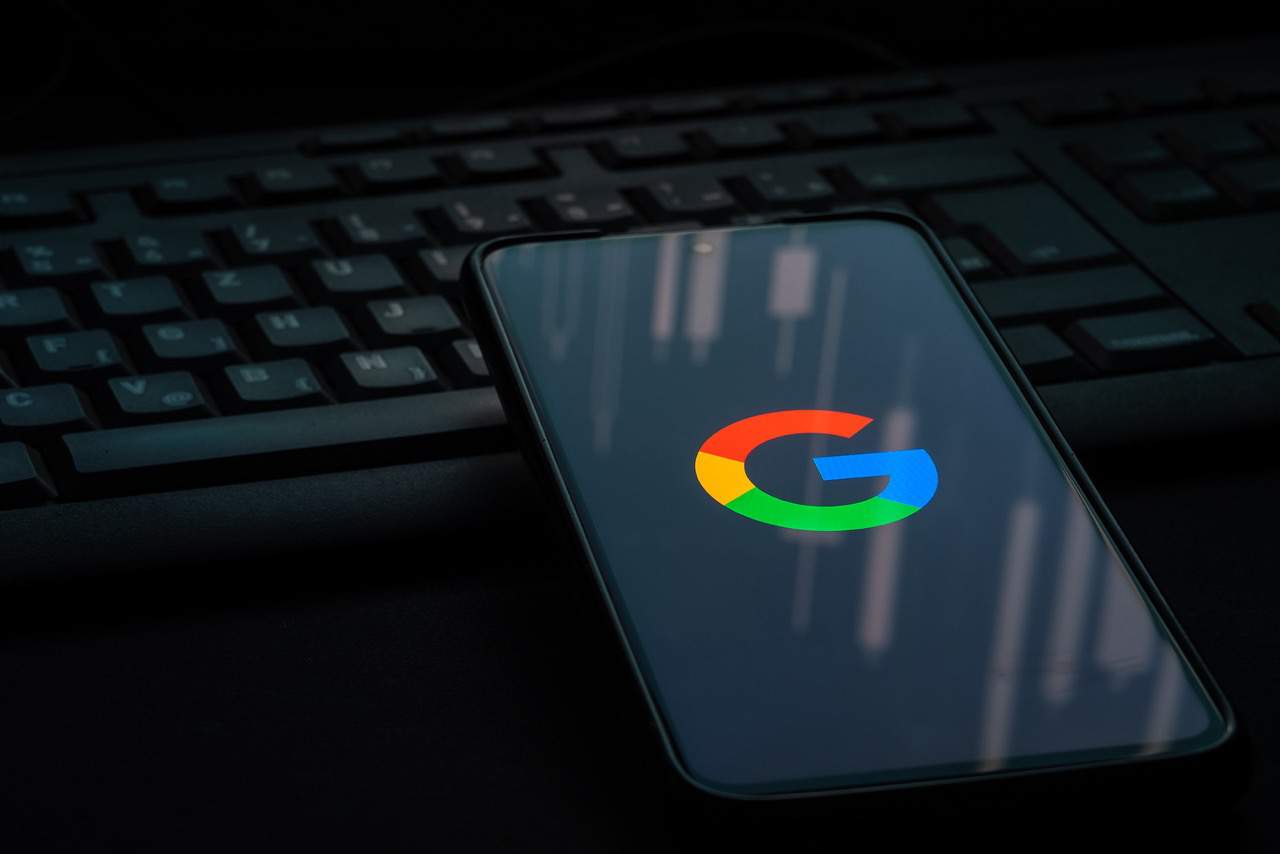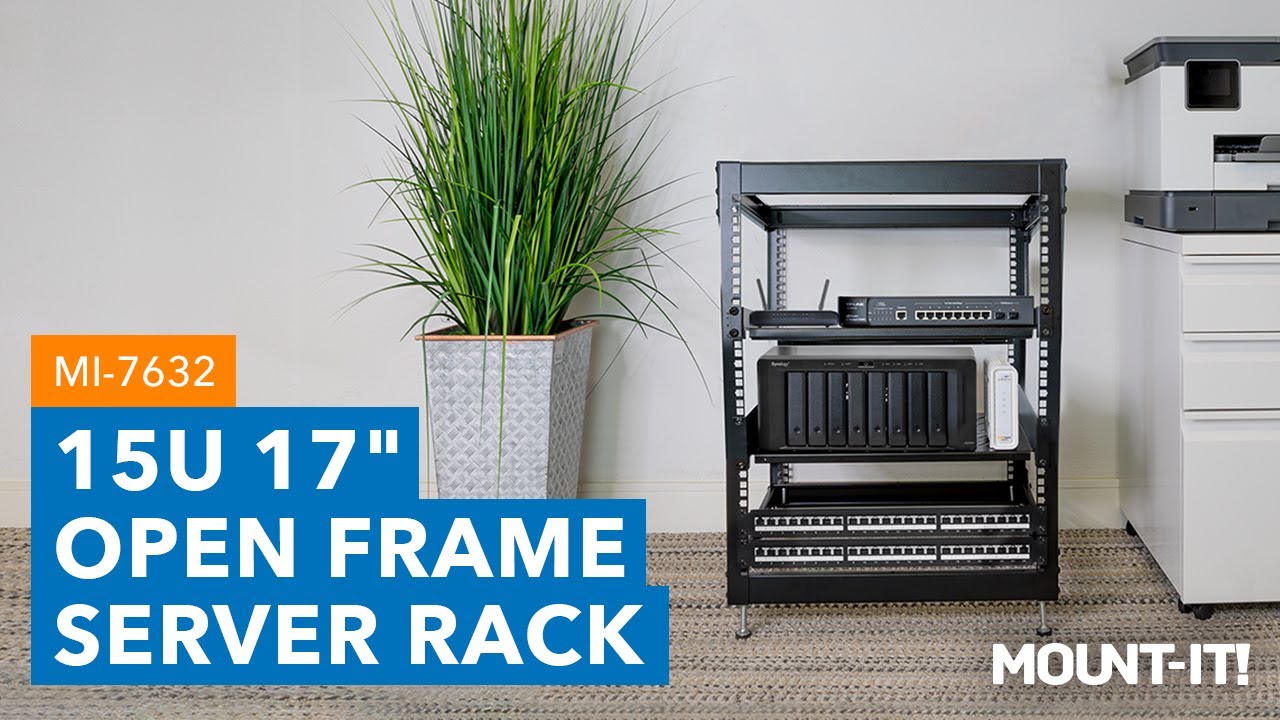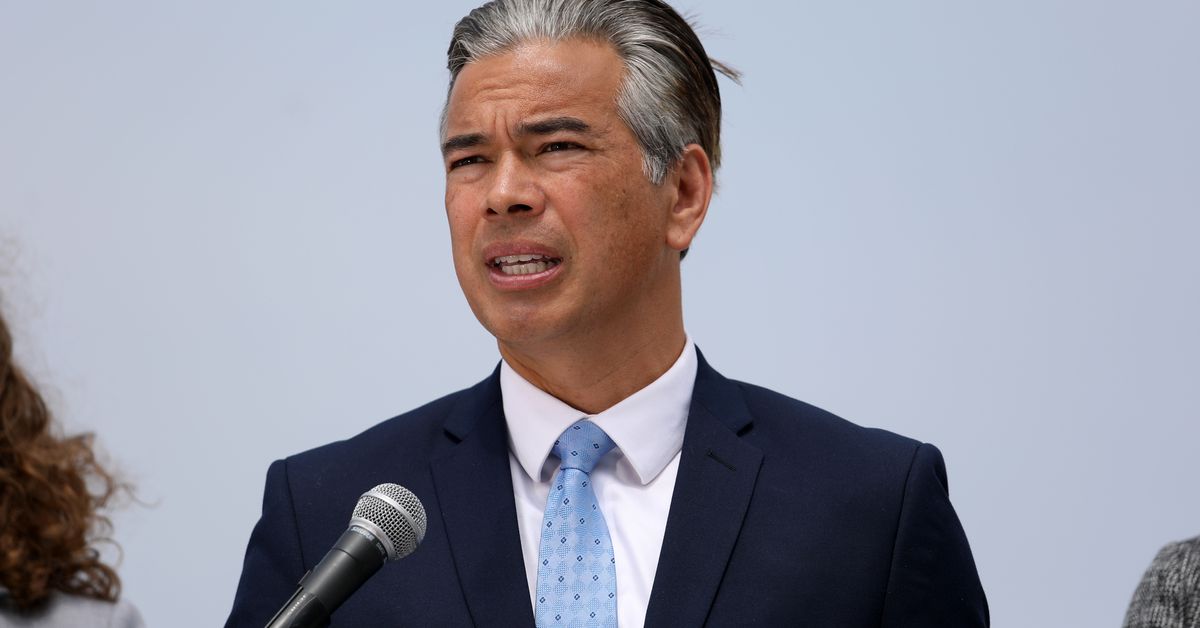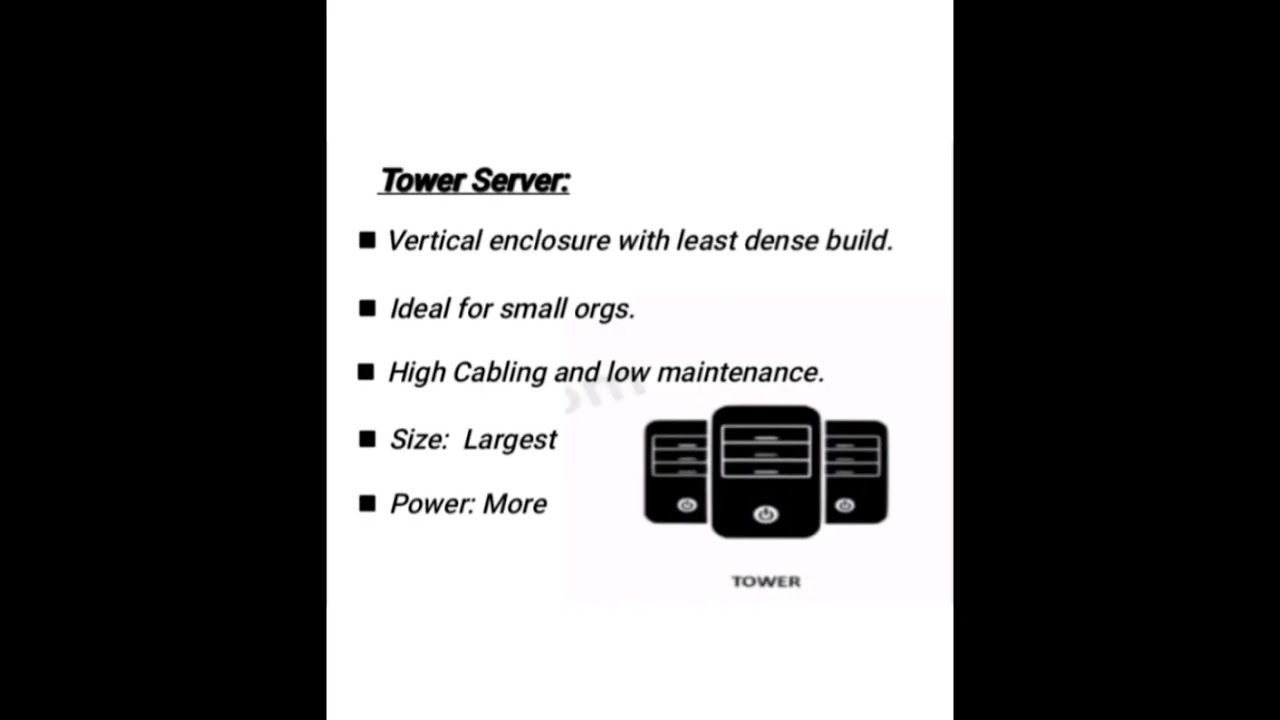California is going after ExxonMobil over what it calls a “campaign of deception” about plastic recycling.
Technology
How Google reduced Android’s safety vulnerabilities by 52%

For years, Google has been working hard to make Android an increasingly secure OS. Attackers look for any loophole they can exploit, using mundane methods like phishing or more complex ones like memory safety vulnerabilities. Now, Google explains how the Safe Coding approach has managed to significantly reduce memory safety vulnerabilities in Android in recent years.
Google uses Safe Coding approach against memory safety vulnerabilities
Memory safety vulnerabilities are those that take advantage of memory-related bugs, such as buffer overflows, format string issues, or dangling pointers, to interact with or even write over the memory. These types of vulnerabilities are still widely present in software development. Developers try to attack them from various approaches, with mitigations and proactive detections predominating. However, Google is confident that Safe Coding is the ideal approach to minimize memory safety vulnerabilities, as evidenced by its results with Android.
The Safe Coding approach prioritizes the use of memory-safe programming languages from the start. However, there is software that is many years old and has millions of lines of key code developed on “memory-unsafe” languages. So, what is Google’s proposal in these cases? The answer is in the gradual transition to memory-safe languages (like Rust) for new features.
Basically, Google proposes that developers start implementing exclusively memory-safe languages when developing new features. In the meantime, old code based on unsafe languages will remain “unchanged” beyond the classic maintenance and bug fixes. This translates into achieving safe, efficient, and cost-effective interoperability between new and old code.
Android’s memory safety vulnerabilities fell 52% in 6 years
According to Google, the Safe Coding approach resulted in a drop in memory safety vulnerabilities in Android from 76% to 24% in just 6 years. However, the idea of keeping memory-unsafe code can seem counterintuitive. After all, if you’re looking for maximum security, your first thought would be to migrate all your code to a safe language. While this may be true, Google’s approach makes sense, and the company explains why.

In software development, code efficiency and cost-effectiveness are key. There are tools or entire systems with many years of development behind them. This involves millions and millions of fundamental lines of code. While a company could simply start rewriting software from scratch based on memory-safe languages, the investment and effort are probably not worth it. The situation might be different in relatively new developments with not much time behind them, though.
Advantages of Safe Coding and interoperability
Google claims that the Safe Coding approach, which is based on code interoperability, is a cost-effective and practical way to adopt memory-safe code. This, in turn, makes it cost-effective, as it allows companies to leverage previous investments. The cost is significantly lower compared to rewriting software from scratch. It is also efficient because it allows new features to continue to be developed while integrating the new, safe code.
Using inherently memory-safe code also ensures lower costs in the long run. Previous approaches favored an endless cycle of “attack and defend” between developers and attackers. Relying on mitigations and proactive detections necessitated continuous action and investment in response to potential attacks. However, Safe Coding allows developers and companies to forget about this, focusing on maintaining and improving features or fixing bugs.
There is also greater productivity thanks to lower code rollback rates. That is, there are fewer emergency code rollback situations due to unexpected bugs. Google claims that Rust offers code rollback rates of less than half that of C++. Essentially, Safe Coding brings significant savings in time and money for businesses and developers. In today’s industry, which closely monitors profitability, this can be crucial.
Google reveals that it implemented interoperability between “Rust ↔︎ C++ and Rust ↔︎ Kotlin.” The company has also contributed both money and tools to power its approach. For example, Google gave $1,000,000 to the Rust Foundation to boost its evolution. It also provided its own interoperability tools, such as Crubit and autocxx.

This is how the Safe Coding approach makes software more secure
You may still be wondering how an approach that keeps memory-unsafe code can lead to an exponential reduction of memory safety vulnerabilities. Google also explains this in its blog post, in a very technical way, but I’ll try to make it simple for everyone.
Through large-scale studies, USENIX Security and Google itself discovered an intriguing phenomenon. Basically, the research concluded that the vast majority of memory vulnerabilities in software have their origin in new code. A significant portion is also derived from recently modified code. Google also noticed that the density of Android memory safety vulnerabilities decreased progressively in old code.
Given that a significant portion of the issue stems from new code, it makes sense to focus on it, correct? This is the reasoning behind Google’s decision to adopt the Safe Coding approach. But why do more problems and vulnerabilities accumulate in new code? This is because every programming language has a fundamental property: maturation.
While the fundamental structure of a language can make it memory unsafe, successive updates can help mitigate this. So, theoretically, unsafe code used in older parts of the software can become less vulnerable over time. By combining the maturation of older code with new features developed in new, inherently memory-safe code, the result will be an exponential decrease in memory vulnerabilities.

Google recommends Rust as a memory-safe language
Of course, porting parts of older code to languages like Rust can make things even safer. However, this isn’t always possible, at least not in a straightforward way. There are cases where moving a single block can bring down the whole castle. Google is adamant about Rust as a memory-safe programming language. So if you’re interested in learning programming or a new language to be competitive in today’s industry, Rust may be what you’re looking for.
Memory safety vulnerabilities aren’t the only ones out there. Malicious third parties will continue to look for ways to try to bypass the security layers of any software. However, having strong barriers in the “guts” of the software ensures that attackers will have to resort to more mundane and easily neutralized methods. For example, you can avoid being a victim of phishing by simply using common sense.
Servers computers
Open Frame Server Rack | MI-7631 (Features)

Our website: https://bit.ly/3sV6HYJ
Also available on Amazon: https://amzn.to/3M9SFKJ
And your other favorite vendors like, Walmart, Wayfair, etc!
———————————————————————————————————————————————————-
Servers, Mini PC’s, AV Equipment, Stereos, Routers, Modems & More: The Mount-It! portable server rack is versatile enough to be used as an AV rack (AV cabinet), small server rack or a classic networking rack. 1U shelf holds 44lbs, 2U shelf holds 66lbs.
———————————————————————————————————————————————————-
Follow us on:
Facebook: https://www.facebook.com/shopmountit
Instagram: https://www.instagram.com/mount_it_/
Visit our Website at: https://www.mount-it.com for more ergonomic solutions.
—————————————————————————————————————————————————–
source
Technology
Why California is suing ExxonMobil for ‘perpetuating the lie’ of plastic recycling

The Golden State filed suit against the oil giant this week, alleging that it has misled consumers for years by marketing recycling as a way to prevent plastic pollution. Plastic is difficult and relatively costly to recycle, and very little of it ever gets rehashed, but the industry sold recycling as a feasible solution anyway.
That’s why California wants to hold ExxonMobil accountable for the role it says the company played in filling landfills and waterways with plastic. Plastics are made with fossil fuels, and California says ExxonMobil is the biggest producer of single-use plastic polymers.
California wants to hold ExxonMobil accountable
ExxonMobil defended itself in an emailed response to The Verge, writing: “For decades, California officials have known their recycling system isn’t effective. They failed to act, and now they seek to blame others. Instead of suing us, they could have worked with us to fix the problem and keep plastic out of landfills.”
The Verge spoke with California Attorney General Rob Bonta about plastic recycling and the allegations California makes in the landmark lawsuit.
This interview has been lightly edited for length and clarity.
I think a lot of people around my age grew up thinking that recycling plastic is a good thing. Why go after ExxonMobil over recycling?
It’s a difficult confrontation of a truth, especially since ExxonMobil and others have been so successful at perpetuating the lie.
A 14-year-old who I met yesterday was just distraught over the fact that all of the plastic items that she carefully selected to make sure they have the chasing arrows on it and then make sure that after she used it, she placed it thoughtfully and diligently in the blue container for recycling — that 95 percent of the time, that item was not recycled. Instead, it went into the landfill, the environment, or incinerated. And so she was having a hard time, and I’m sure she’s not alone, and others will have the same difficulty getting their head around the actual truth.
It’s really important for us, in my view, to confront problems. You need to face problems to fix them. One of them is a major problem created by ExxonMobil. They have perpetuated the myth of recycling. They have been engaged in a decadelong campaign of deception in which they have tried to convince the public that recycling of plastics, including single-use plastics, is sustainable when it’s not. When they know that only 5 percent is recycled [in the US].
Why would they say that if they knew that it wasn’t true? Well, because it increases their profits. It makes people buy more. If people buy plastics and believe that no matter how much they use, how frequently they use it, if they engage in a single-use throwaway lifestyle, they’re still being good stewards of the environment because it’s all recyclable and will be reused again somewhere in someone else’s household as a plastic product — they’re much more likely to buy more. And that’s exactly what’s happened.
Your office says it “uncovered never-before-seen documents” as part of its investigation into the role fossil fuel companies play in causing plastic pollution. Can you give examples of what you found? Did anything surprise you?
What some of the new documents that have not been seen before really get at is this type of greenwashing by ExxonMobil called advanced recycling.
The documents reveal to us that this newest, latest, purportedly greatest form of recycling is neither advanced nor is it recycling. It’s an old technology. They basically heat the plastic so that it melts into its smallest component parts, and that’s been used before Exxon and Mobil merged. Each experimented with it and then decided to no longer pursue it.
And the process doesn’t actually recycle plastic into other plastic, which is what people think they mean when their plastic is being recycled. But 92 percent of what advanced recycling turns plastic waste into is transportation fuel and other chemicals and resins and materials. It’s mostly fuel for your car, fuel for your boat, fuel for your plane. It’s burned once and emitted into the air, into the environment. That is not recycling.
What would California get out of winning this case?
Right now, the harm to California from ExxonMobil’s lies and deception and the myth of recycling are a billion dollars a year in taxpayer-funded cleanup and damage in terms of the plastic pollution crisis that we’re facing.
Here are the things that we would get if we win this case, and we believe we will. We will get an injunction that says ExxonMobil can no longer lie and can no longer perpetuate the myth of recycling. That they need to tell the truth going forward — they can’t say that things can be recycled when they can’t.
We’ll also get an abatement fund, which will be funded by billions of dollars from ExxonMobil. It will pay for ongoing plastic pollution in California that harms our people, our environment, our natural resources. It will pay for a re-education campaign so that people can learn that recycling is only 5 percent of plastic waste, 95 percent is not recycled. It could also be used to further research on microplastics, which are invisible plastic particles that are in our bodies, in the air, in our food, in our water, and to see what the human impact is of that.
We’ll also get a disgorgement of profits, which means that any profits that were wrongly secured by ExxonMobil because of their lies would have to be turned over. We also have some civil penalties and some fees that we’re seeking.
You’re the first Filipino American attorney general in California, the state with the most FilAms in the US. I used to live in Long Beach, California, where there’s a big Southeast Asian community and also a lot of air pollution from all the vessel and truck traffic surrounding the port in that area. Does this ever get personal for you — the impact that pollution from oil and gas operations disproportionately has on immigrant communities?
My oldest daughter, when she was in high school, she came up to me and she said, “Dad is this weird?” She said, “My friends and I have been talking, and we decided that we don’t want to have kids because we don’t want to bring a new life into a dying planet.” And I will always remember that. That was a gut punch.
That one made me really think. It made me worry. It kept me up at night. It made me question whether we were on pace to fulfill our duty as elected officials, to pass on to the next generation a better society and world than we’ve had. I thought we might be certainly behind schedule and maybe at the risk of failing when it comes to protecting our climate and making sure that there’s a planet for tomorrow. So, that’s personal.
Our lived experiences, our values, drive us. But we will also always fulfill our duty, our ethical obligations, and make sure that we’re bringing cases that are strong and sound, based on facts and law. It’s consistent with my values, my lived experiences. The law and the facts all point in the same direction on this case.
Technology
“Perfect storm” – CrowdStrike VP apologizes as Congress hearing into outage begins


Following July 2024 Crowdstrike incident, in which millions of Windows machines crashed due to a broken software update for its endpoint protection software, the company’s senior VP for counter adversary operations, Adam Meyers, appeared at a cybersecurity subcommittee hearing at the US House of Representatives to say the company was “deeply sorry”.
Meyers was left to testify in the absence of CEO George Kurtz who, per The Register, declined to testify. Explaining the issue to lawmakers, Meyers said that the company released 10 to 12 content updates, like the one that caused the major incident, per day, and that a “perfect storm of issues”, described in his written testimony (PDF), conspired to put much of the world’s IT’s systems into meltdown, requiring a manual fix.
He claimed these content updates were now under increased scrutiny to ensure quality control, but lawmakers remain unconvinced that kernel-level access to Windows – what enabled the incident to occur – is necessary, but Meyers explained that he sees visibility into all aspects of the operating system as vital for Crowdstrike to function.
Kernel-level access in endpoint security
“You can provide enforcement, in other words, threat prevention, and ensure anti-tampering,” said Meyers, stressing tampering at the Kernel-level was exactly the cause of ransomware attacks on MGM Resort International’s computer systems linked to their casinos and hotels.
Despite the fact these attacks still took place (though it’s unclear as to exactly what cybersecurity measures MGM Resorts had in place) , Meyers continued to advocate for Kernel-level access by claiming that the group of threat actors responsible, Scattered Spider, are “using new techniques to elevate their privilege in order to disable security tools on a regular basis.”
“In order to stop that from happening,” he said, “we will continue to leverage the architecture of the operating system.”
So, ultimately, nothing has changed, but security experts at other cybersecurity software companies argue that it’s not kernel-level access that’s the issue, but how it’s managed, with The Register noting that Trellix pushes kernel-level updates just once a quarter.
Given the extent of the damage to vital systems infrastructure; including cancelled Delta flights affecting half a million people, perhaps it’s unsurprising that Microsoft is looking to provide additional security capabilities outside of kernel mode in the future.
More from TechRadar Pro
Servers computers
Rack Server, Tower Server & Blade Server (ICT Assignment)
Technology
Assassin’s Creed Shadows release date delayed to 2025

Ubisoft has announced its highly-anticipated upcoming game Assassin’s Creed Shadows has been delayed until next year.
Instead of releasing it on 12 November as previously planned, it has been pushed back to 14 February 2025.
It follows the disappointing performance of another of the firm’s major titles, Star Wars Outlaws, and concerns from some about how Ubisoft is being run.
The game’s executive producer Marc-Alexis Cote said the developers “need more time to polish and refine the experience”.
“We understand this decision will come as disappointing news,” he said.
“But we sincerely believe this is in the best interest of the game.”
In a trading update sent to Ubisoft’s investors, seen by the BBC, the firm – which is headquartered in France – said despite the game being “feature complete” it needed more time.
“The learnings from the Star Wars Outlaws release led us to provide additional time to further polish the title,” it reads.
Star Wars Outlaws was released in August to strong reviews, but early players complained of bugs and glitches.
In its trading update, Ubisoft notes sales of the game were “softer than expected”, which it seemed to be putting down to a lack of polish.
Mr Cote said the firm would refund fans who had pre-ordered the game, and promised a free expansion to anyone who placed a new pre-order for the revised launch.
When it finally arrives, Assassin’s Creed Shadows will be the first game in the series to be set in Japan – a setting fans have been clamouring for since the series began in 2007.
The decision to push the game back beyond Christmas – usually a lucrative time for game sales – will not have been made lightly.
But the sales performance of Star Wars Outlaws caused Ubisoft’s shares to take a serious hit, when the firm would have been hoping the game would set it back on course.
They have fallen to a price of 11.32 euros a share at the time of writing – the lowest in a decade.
A minority investor wrote a letter to the board earlier this month calling for the company to either be taken private or sold to an investor.
Ubisoft co-founder and boss Yves Guillemot said the move to push back Assassin’s Creed Shadows’ launch was a result of the firm’s second quarter performance – which “fell sort of our expectations”.
“We remain committed to creating games for fans and players that everyone can enjoy,” he said.
Servers computers
Dell Rack Server Series | Dell Tower Server Series | Price/Cost

TieDot Technologies Dealer, Distributor and Re-Seller Provides New Dell PowerEdge Rack Server and Tower Servers in Bangalore – India for price and availability Call: +91-9035020041 | +91-9036000187
source
-

 Womens Workouts2 days ago
Womens Workouts2 days ago3 Day Full Body Women’s Dumbbell Only Workout
-

 News1 week ago
News1 week agoYou’re a Hypocrite, And So Am I
-

 Technology1 week ago
Technology1 week agoWould-be reality TV contestants ‘not looking real’
-

 Sport6 days ago
Sport6 days agoJoshua vs Dubois: Chris Eubank Jr says ‘AJ’ could beat Tyson Fury and any other heavyweight in the world
-

 News3 days ago
News3 days agoOur millionaire neighbour blocks us from using public footpath & screams at us in street.. it’s like living in a WARZONE – WordupNews
-

 Science & Environment6 days ago
Science & Environment6 days ago‘Running of the bulls’ festival crowds move like charged particles
-

 Science & Environment7 days ago
Science & Environment7 days agoSunlight-trapping device can generate temperatures over 1000°C
-

 Science & Environment1 week ago
Science & Environment1 week agoHow to unsnarl a tangle of threads, according to physics
-

 Science & Environment7 days ago
Science & Environment7 days agoITER: Is the world’s biggest fusion experiment dead after new delay to 2035?
-

 Science & Environment6 days ago
Science & Environment6 days agoQuantum ‘supersolid’ matter stirred using magnets
-

 Science & Environment7 days ago
Science & Environment7 days agoHow to wrap your mind around the real multiverse
-

 CryptoCurrency6 days ago
CryptoCurrency6 days agoEthereum is a 'contrarian bet' into 2025, says Bitwise exec
-

 Science & Environment7 days ago
Science & Environment7 days agoMaxwell’s demon charges quantum batteries inside of a quantum computer
-

 Science & Environment1 week ago
Science & Environment1 week agoTime travel sci-fi novel is a rip-roaringly good thought experiment
-

 Science & Environment7 days ago
Science & Environment7 days agoLiquid crystals could improve quantum communication devices
-

 CryptoCurrency6 days ago
CryptoCurrency6 days agoDZ Bank partners with Boerse Stuttgart for crypto trading
-

 CryptoCurrency6 days ago
CryptoCurrency6 days agoBitcoin bulls target $64K BTC price hurdle as US stocks eye new record
-

 Science & Environment7 days ago
Science & Environment7 days agoWhy this is a golden age for life to thrive across the universe
-

 Science & Environment6 days ago
Science & Environment6 days agoHyperelastic gel is one of the stretchiest materials known to science
-

 Science & Environment6 days ago
Science & Environment6 days agoQuantum forces used to automatically assemble tiny device
-

 Science & Environment7 days ago
Science & Environment7 days agoLaser helps turn an electron into a coil of mass and charge
-

 Science & Environment1 week ago
Science & Environment1 week agoNerve fibres in the brain could generate quantum entanglement
-

 Science & Environment1 week ago
Science & Environment1 week agoCaroline Ellison aims to duck prison sentence for role in FTX collapse
-

 Science & Environment6 days ago
Science & Environment6 days agoNuclear fusion experiment overcomes two key operating hurdles
-

 CryptoCurrency6 days ago
CryptoCurrency6 days agoBitcoin miners steamrolled after electricity thefts, exchange ‘closure’ scam: Asia Express
-

 CryptoCurrency6 days ago
CryptoCurrency6 days agoCardano founder to meet Argentina president Javier Milei
-

 CryptoCurrency6 days ago
CryptoCurrency6 days agoDorsey’s ‘marketplace of algorithms’ could fix social media… so why hasn’t it?
-

 CryptoCurrency6 days ago
CryptoCurrency6 days agoLow users, sex predators kill Korean metaverses, 3AC sues Terra: Asia Express
-

 Science & Environment3 days ago
Science & Environment3 days agoMeet the world's first female male model | 7.30
-

 News6 days ago
News6 days agoIsrael strikes Lebanese targets as Hizbollah chief warns of ‘red lines’ crossed
-

 Technology6 days ago
Technology6 days agoiPhone 15 Pro Max Camera Review: Depth and Reach
-

 News6 days ago
News6 days agoBrian Tyree Henry on voicing young Megatron, his love for villain roles
-

 Health & fitness1 week ago
Health & fitness1 week agoThe secret to a six pack – and how to keep your washboard abs in 2022
-

 CryptoCurrency6 days ago
CryptoCurrency6 days agoRedStone integrates first oracle price feeds on TON blockchain
-

 CryptoCurrency6 days ago
CryptoCurrency6 days agoSEC asks court for four months to produce documents for Coinbase
-

 CryptoCurrency6 days ago
CryptoCurrency6 days ago‘No matter how bad it gets, there’s a lot going on with NFTs’: 24 Hours of Art, NFT Creator
-

 CryptoCurrency6 days ago
CryptoCurrency6 days agoBlockdaemon mulls 2026 IPO: Report
-

 CryptoCurrency6 days ago
CryptoCurrency6 days agoCoinbase’s cbBTC surges to third-largest wrapped BTC token in just one week
-

 Sport6 days ago
Sport6 days agoUFC Edmonton fight card revealed, including Brandon Moreno vs. Amir Albazi headliner
-

 Science & Environment6 days ago
Science & Environment6 days agoHow one theory ties together everything we know about the universe
-

 Science & Environment7 days ago
Science & Environment7 days agoQuantum time travel: The experiment to ‘send a particle into the past’
-

 Science & Environment7 days ago
Science & Environment7 days agoPhysicists are grappling with their own reproducibility crisis
-

 CryptoCurrency6 days ago
CryptoCurrency6 days ago2 auditors miss $27M Penpie flaw, Pythia’s ‘claim rewards’ bug: Crypto-Sec
-

 CryptoCurrency6 days ago
CryptoCurrency6 days agoJourneys: Robby Yung on Animoca’s Web3 investments, TON and the Mocaverse
-

 CryptoCurrency6 days ago
CryptoCurrency6 days ago$12.1M fraud suspect with ‘new face’ arrested, crypto scam boiler rooms busted: Asia Express
-

 CryptoCurrency6 days ago
CryptoCurrency6 days agoCertiK Ventures discloses $45M investment plan to boost Web3
-

 CryptoCurrency6 days ago
CryptoCurrency6 days agoVitalik tells Ethereum L2s ‘Stage 1 or GTFO’ — Who makes the cut?
-

 CryptoCurrency6 days ago
CryptoCurrency6 days agoEthereum falls to new 42-month low vs. Bitcoin — Bottom or more pain ahead?
-
Business6 days ago
How Labour donor’s largesse tarnished government’s squeaky clean image
-

 News6 days ago
News6 days agoBrian Tyree Henry on voicing young Megatron, his love for villain roles
-

 Womens Workouts5 days ago
Womens Workouts5 days agoBest Exercises if You Want to Build a Great Physique
-

 Womens Workouts5 days ago
Womens Workouts5 days agoEverything a Beginner Needs to Know About Squatting
-

 News6 days ago
News6 days agoChurch same-sex split affecting bishop appointments
-

 Politics1 week ago
Politics1 week agoTrump says he will meet with Indian Prime Minister Narendra Modi next week
-

 Politics6 days ago
Politics6 days agoLabour MP urges UK government to nationalise Grangemouth refinery
-

 News1 week ago
News1 week agoRoad rage suspects in custody after gunshots, drivers ramming vehicles near Boise
-

 Health & fitness1 week ago
Health & fitness1 week agoThe maps that could hold the secret to curing cancer
-

 CryptoCurrency6 days ago
CryptoCurrency6 days agoHelp! My parents are addicted to Pi Network crypto tapper
-

 CryptoCurrency6 days ago
CryptoCurrency6 days agoCrypto scammers orchestrate massive hack on X but barely made $8K
-

 Science & Environment6 days ago
Science & Environment6 days agoTiny magnet could help measure gravity on the quantum scale
-

 Science & Environment6 days ago
Science & Environment6 days agoUK spurns European invitation to join ITER nuclear fusion project
-

 Science & Environment6 days ago
Science & Environment6 days agoWhy we need to invoke philosophy to judge bizarre concepts in science
-

 Science & Environment6 days ago
Science & Environment6 days agoFuture of fusion: How the UK’s JET reactor paved the way for ITER
-

 Science & Environment6 days ago
Science & Environment6 days agoHow do you recycle a nuclear fusion reactor? We’re about to find out
-

 CryptoCurrency6 days ago
CryptoCurrency6 days agoSEC sues ‘fake’ crypto exchanges in first action on pig butchering scams
-

 CryptoCurrency6 days ago
CryptoCurrency6 days agoBitcoin price hits $62.6K as Fed 'crisis' move sparks US stocks warning
-

 CryptoCurrency6 days ago
CryptoCurrency6 days agoCZ and Binance face new lawsuit, RFK Jr suspends campaign, and more: Hodler’s Digest Aug. 18 – 24
-

 CryptoCurrency6 days ago
CryptoCurrency6 days agoBeat crypto airdrop bots, Illuvium’s new features coming, PGA Tour Rise: Web3 Gamer
-

 CryptoCurrency6 days ago
CryptoCurrency6 days agoTelegram bot Banana Gun’s users drained of over $1.9M
-

 CryptoCurrency6 days ago
CryptoCurrency6 days agoVonMises bought 60 CryptoPunks in a month before the price spiked: NFT Collector
-

 CryptoCurrency6 days ago
CryptoCurrency6 days ago‘Silly’ to shade Ethereum, the ‘Microsoft of blockchains’ — Bitwise exec
-
Business6 days ago
Thames Water seeks extension on debt terms to avoid renationalisation
-
Politics6 days ago
‘Appalling’ rows over Sue Gray must stop, senior ministers say | Sue Gray
-

 News6 days ago
News6 days agoBrian Tyree Henry on his love for playing villains ahead of “Transformers One” release
-

 News5 days ago
News5 days agoBangladesh Holds the World Accountable to Secure Climate Justice
-

 News3 days ago
News3 days agoWhy Is Everyone Excited About These Smart Insoles?
-

 News3 days ago
News3 days agoFour dead & 18 injured in horror mass shooting with victims ‘caught in crossfire’ as cops hunt multiple gunmen
-

 Travel1 day ago
Travel1 day agoDelta signs codeshare agreement with SAS
-

 Technology6 days ago
Technology6 days agoFivetran targets data security by adding Hybrid Deployment
-

 Science & Environment6 days ago
Science & Environment6 days agoSingle atoms captured morphing into quantum waves in startling image
-

 Money7 days ago
Money7 days agoWhat estate agents get up to in your home – and how they’re being caught
-

 Technology1 week ago
Technology1 week agoCan technology fix the ‘broken’ concert ticketing system?
-

 Science & Environment6 days ago
Science & Environment6 days agoA new kind of experiment at the Large Hadron Collider could unravel quantum reality
-

 Fashion Models6 days ago
Fashion Models6 days agoMixte
-

 Science & Environment6 days ago
Science & Environment6 days agoHow Peter Higgs revealed the forces that hold the universe together
-

 News1 week ago
News1 week ago▶️ Media Bias: How They Spin Attack on Hezbollah and Ignore the Reality
-

 Science & Environment7 days ago
Science & Environment7 days agoBeing in two places at once could make a quantum battery charge faster
-

 CryptoCurrency6 days ago
CryptoCurrency6 days agoLouisiana takes first crypto payment over Bitcoin Lightning
-

 Science & Environment6 days ago
Science & Environment6 days agoA tale of two mysteries: ghostly neutrinos and the proton decay puzzle
-

 CryptoCurrency6 days ago
CryptoCurrency6 days agoDecentraland X account hacked, phishing scam targets MANA airdrop
-

 CryptoCurrency6 days ago
CryptoCurrency6 days agoElon Musk is worth 100K followers: Yat Siu, X Hall of Flame
-

 CryptoCurrency6 days ago
CryptoCurrency6 days agoMemecoins not the ‘right move’ for celebs, but DApps might be — Skale Labs CMO
-

 CryptoCurrency6 days ago
CryptoCurrency6 days agoETH falls 6% amid Trump assassination attempt, looming rate cuts, ‘FUD’ wave
-
Politics6 days ago
The Guardian view on 10 Downing Street: Labour risks losing the plot | Editorial
-

 Politics6 days ago
Politics6 days agoI’m in control, says Keir Starmer after Sue Gray pay leaks
-
Business6 days ago
UK hospitals with potentially dangerous concrete to be redeveloped
-
Politics6 days ago
‘Hundreds’ of prisoners freed early in England and Wales not fitted with tags | Prisons and probation
-
Business6 days ago
Axel Springer top team close to making eight times their money in KKR deal
-

 Politics6 days ago
Politics6 days agoParties, brothels and drugs plague holiday let neighbours, say MPs
-

 News6 days ago
News6 days ago“Beast Games” contestants sue MrBeast’s production company over “chronic mistreatment”


You must be logged in to post a comment Login